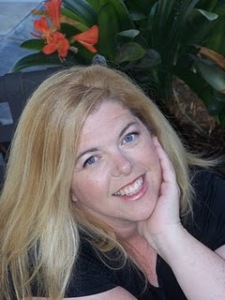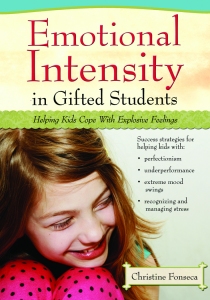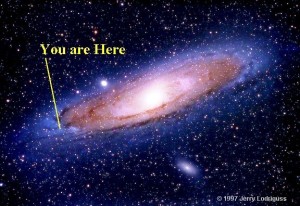 I’m thrilled to have Christine Fonseca as my guest today!
I’m thrilled to have Christine Fonseca as my guest today!
CF: Thanks for having me on your blog today. I really appreciate all of your support!
You have not only graced us with your time, but also signed copy of your new book to give away. I’ll spill the details of how the readers can win the signed book at the end of our conversation. I’ve really been looking forward to asking you questions about your new book as well as about yourself Christine, so let me jump right in with a few questions.
You work with gifted kids often as well as being gifted yourself. I know that the topics you write in your book are emotional ones even if you weren’t gifted, but in being so wrapped up in it, did it make writing about the topic easier or harder?
Great question. I am what I like to call a “method” writer, meaning I often “become” my characters for a bit while I am engrossed in a particular project. This is most true with fiction.
As you said, I write about very emotional topics – self-mutilation, first love, jealousy, murder, redemption, mental health disorders. These topics, coupled with my own intense approach to writing can make writing the first draft a very emotionally intense experience for me. Not easy or hard, just really intense!
Things change in revisions, as I purposefully take a step back and try to objectively go through the manuscript with a little distance.
How do you deal with perfectionism in writing? Do you ever feel as if it’s “good enough” or do you just keep working on it until you feel it actually is perfect?
My perfectionistic tendencies are something I am always having to work through. The short answer is “no”, the manuscript never really feels good enough for publishing. Even when my publisher released the first chapter of EMOTIONAL INTENSITY for me to link on my blog, I freaked – terrified that it really wasn’t good enough.
Thankfully, I have amazing writerly friends that help keep my neuroses in check, reminding me that perfection is a myth and my work is good (except of course, when my work really is not!).
I’ve learned over the last several years in this business that while I will definitely strive for perfection in my novels – that will never actually happen. There is always something that can be improved upon, another layer that can be delved into. My job is to do the very best I can and them release it to those who can help make it even better.
I guess letting-go has become an integral part of how I deal with my own perfectionism.
You write both nonfiction for giftedness and Young Adult fiction. That seems as if it would be a big difference. What’s the most difficult part of changing your writing style?
You know, they are so very different – nonfiction and fiction – that I don’t have much difficulty switching between the two at all. Nonfiction is definitely well within my comfort zone of writing. As I write reports daily at work, and write newsletter articles and the like, writing a nonfiction book feels very much like my day job.
Fiction on the other hand, appeals to a more creative aspect of me. It takes me much longer to craft a great story than it does to write nonfiction. In that respect, I guess that hardest aspect of the switch is related to patience – both in terms of the time it takes to write the novel versus a nonfiction book, and in terms of the revision process.
What would you be doing if you had your druthers and didn’t have anything pressing upon you to worry about?
HA! I love these kinds of questions. The beautiful thing is, if I could do absolutely anything, I would be doing very much what I do now – I would write, play with my family, and help gifted kids. The difference is, I’d do it on MY time schedule and anywhere I wanted to.
You have mentioned that you often over commit to different activities. Do you find that you also need alone time to do nothing?
Oh yes, I definitely need time to recharge. And usually that means I am doing NOTHING…not reading, not interacting…NOTHING. It takes a long time for me to get to the point when I truly need to hide, but it does happen. Especially if I have not been balancing things in my life very well.
What do you do when you burn-out to recharge your batteries? …and how long does it take to recharge?
Burn-out…YUCK. Typically I can feel burn-out coming on early enough that one great day chillaxin’ with my friends or family is enough to balance me out. But every now and then, things get too overwhelming and I can take a week or longer to really recharge. During these times, my BFFs are my life-support. I may veg on the computer, chatting with them endlessly. They may think they are keeping me from my work – but really, they are giving me the air I need to live some days!
You seem to walk a fine line between being very honest and open with your blog writing, but at the same time, you keep your family out of the picture. How do you manage to not use examples from family conflicts or experiences?
Yes, it’s true…I don’t really talk about my family in details. That is not always the case when I am teaching a group of parents. Personal examples can be quite powerful. And used within the context of a small class, I think they are particularly potent.
That being said, I really try to respect the privacy of my family both in my books and in my internet networking. It is something my husband and I talked about at length when I moved from teaching small classes to exposing myself and my work in a more global way.
You’re gifted, and my readers can relate to having a wide assortment of interests, but what do you feel you have had to “sacrifice” in order to be where you are? As in what else could you have been doing if you weren’t so committed to other events or things would have been different in your education or past?
For me, it’s never really been about sacrificing one thing for another, but figuring out how to do all of the things I want to do. And yes, that is why I struggle with the whole balance thing at times. I suppose I changed directions at various times in my life, opting for one course of action or another – but I never really viewed these as sacrifices I’ve made. I really believe that my unique journey has given me the things I need for each leg of the journey I’m on now, if that makes sense. So, in that respect, things have unfolded exactly as they should for my life.
How long did you write about the emotional side of giftedness before you realized you should write this book? And then how long did it take to write the book?
I worked with parents, educators and gifted children for about ten years before I finally wrote this book. My work included individual work in the school setting, as well as teaching parenting classes and school-wide in-services.
EMOTIONAL INTENSITY IN GIFTED STUDENTS did not actually take very long to write. I had a detailed outline and three sample chapters as part of the original proposal. After that, it took about a month or so to finish the book and get it ready to send to my editor. Once I got my editorial letter from my AMAZING (I really cannot compliment her enough) editor, I spent another three weeks or so revising. Like I’ve said elsewhere, nonfiction is a much faster process for me than fiction (which takes me months and months to complete).
I am so glad you took the time to chat with us today and I look forward to seeing more in the future. Your second gifted book is already in the works as I’m to understand. Can you tell us more about it?
101 SUCESS SECRETS FOR GIFTED KIDS: THE ULTIMATE HANDBOOK brings some of the information from EMOTIONAL INTENSITY directly to kids. Here’s the blurb:
Pssst! Want to know a secret? 101 Success Secrets for Gifted Kids: The Ultimate Handbook is a must-read for gifted kids ages 8 to 12 who want to find success in school and life. If you’re a gifted kid or you know gifted kids, you need the 101 awesome secrets, tips, and tricks included in this book!
Chock full of fun suggestions and practical strategies, 101 Success Secrets for Gifted Kids covers topics including bullying, school performance, perfectionism, friendships, and sibling rivalries. Fun quizzes, tip sheets, and practical Q & A sections from other gifted preteens and kids make this book fun to read and give gifted kids insight into everything they’ve ever wanted to know about being gifted. Proven strategies on dealing with stress management, parents’ and teachers’ expectations, anxiety, cyber-bullying, friendship troubles, and more make this the must-have guide for every gifted kid!
I am really excited about this book! I interviewed hundreds of kids and think it’ll really be a great resource. The publisher has great ideas for the layout of the book and I just can’t wait to see it!!!
Well here’s the deal on winning a free copy of the Christine’s new book Emotional Intensity In Gifted Students: You need to post a comment on the blog. You can double your chances by subscribing to Hidden Gifts. Your email address will remain anonymous but it’s how I’ll contact you, so log in, comment and win.
As I have mentioned, Christine, you seem to have a lot of irons in the fire, I’m going to just let your work speak for itself. to wrap this up because you have so many ways you are in contact with your fans.
Website
Blog
Find me (Christine) on Facebook or Twitter

Order the book.
Want an e-reader version? Order here.
Read the first chapter here.
Thanks again for taking the time to talk with us and answer our questions. I think the work you are doing to educate and advocate is wonderful. Please stop by again anytime, especially if you have time after your next book comes out.
Added 10/14/2010
The contest ends in one week from posting, so that’s October 20th. I’ll announce the winner Wednesday. It’s a free signed copy of her book, and I can tell you that it’s not just free, it’s awesome!
 I read. I read books and blogs and articles and I am pulled into the miasma of it all, overwhelmed, adrift in the sea of words and caught up in the ebb and flow of …everything. It’s amazing. I love it and yet it makes me doubt myself even more. My self-doubt of why my voice matters in the maelstrom of amazing voices makes me balk at writing anything.
I read. I read books and blogs and articles and I am pulled into the miasma of it all, overwhelmed, adrift in the sea of words and caught up in the ebb and flow of …everything. It’s amazing. I love it and yet it makes me doubt myself even more. My self-doubt of why my voice matters in the maelstrom of amazing voices makes me balk at writing anything.




